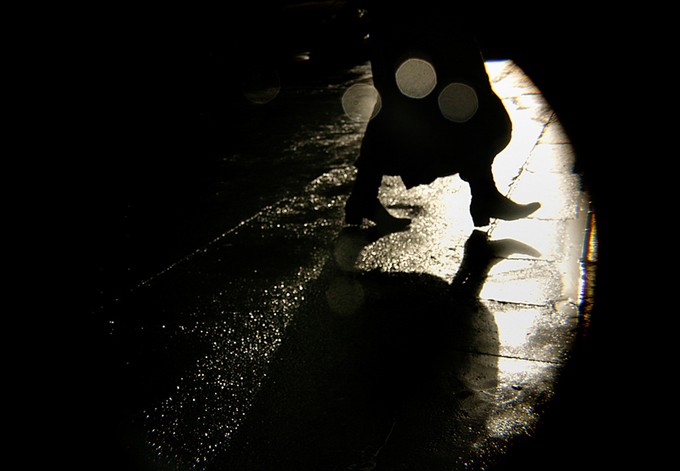“How I was kidnapped and forced to marry”
A woman tells how her ambition to be a nurse was thwarted by ukuthwala
Nokuthula* was kidnapped by a man when she was 19. And her mother conspired in it.
Ukuthwala is when a woman or girl is kidnapped by a man and forced into marriage. This is what happened to Nokuthula.
The practice is old. GroundUp spoke with Nokuthula. She was taken by a 39-year-old man between 1999 and 2000 from her village in the Eastern Cape.
Nokuthula was born in 1980. She says she had a typical upbringing of children living in the villages comprising Idutywa. In high school she had to move from her parents to her aunt to be closer to school.
“I was 19 doing grade 12. There was this old man. I say he was an old man because he was about 20 years older than me. He worked at a mine in Johannesburg.”
The man was an uncle to her aunt’s husband and over the next few weeks he relentlessly pursued Nokuthula. It started when he approached and chatted to her while she was studying for her biology exam; Nokuthula wanted to be a nurse. At one point she noticed how “he looked at me very strangely like someone with lust.”
After having a private conversation with her aunt, the man took Nokuthula’s hands and said he wanted her to be his wife. “I felt like someone had slapped me unexpectedly,” she said. She then refused gifts he offered her. A struggle broke out between them and she broke free.
Frightened, Nokuthula went back to her mother’s place. She told her mother everything but the following day the man came to her mother’s house.
Nokuthula then found a letter from a relative asking her mother to make her marry the man “because young girls like me got pregnant at an early age with boyfriends and so on.”
Her mother instructed her to return to her aunt, which she did. A few days later the man returned. Despite giving him “attitude” and being “rude” to him, her aunt urged her to talk to the man. Once more she fled to her mother’s house. But the man came to see her there too.
“I trusted my mother I knew that she would protect me and would not give me to this man,” said Nokuthula. But the man came again when her mother wasn’t home.
“He asked me to come outside because he wanted to talk to me. I refused. He grabbed me and started pulling me. I fought and my sister also tried to help me by grabbing a bucket of water and throwing it at him.”
When her mother returned she asked “why I was being difficult and causing a scene. I told her it was because I didn’t want to go with this man. She asked me why and then told me to go.”
That night, Nokuthula was dragged by the man on the ground and taken while kicking and screaming.
She was taken to another village and locked inside the man’s hut. She cried the whole night and did not eat or sleep. The next day the man forced her to get on a bus with him to Johannesburg. There they lived first in the compound and then in a township.
Nokuthula says she only started having sex with him out of fear, after three months, because she overheard a group of women saying that the man would seek help from women in the area to hold her down while having sex with her.
After six months Nokuthula received a call from her brother telling her that he heard what happened and that he would help her.
“My brother told me that I should just act normal and not be suspicious. In December the man and I went back to the village to finalise the marriage and pay lobola. I managed to escape in January when we were supposed to go back to Johannesburg. My brother took me and brought me with him to his house here in Cape Town.”
“That is how I managed to escape from my forced marriage.”
For a while Nokuthula did not speak to her mother, but has since forgiven her. She visits her and the rest of the family in the Eastern Cape. She says she has not heard from the man, her husband, since she ran away. She was told that he had five wives now.
Nokuthula says she is disgusted by the practice of ukuthwala and hopes that one day it will end. Had it not been for her mother, she says she would have become a nurse but she had been taken out of school. She is thankful that her husband did not manage to impregnate her.
Deputy Minister of Justice and Constitutional Development John Jeffery explained to GroundUp how ukuthwala falls foul of the Sexual Offences and Related Matters Amendment Act, because people who kidnapping “a child commit the crime of the sexual exploitation of children”.
People who commit ukuthwala can also be prosecuted under the Prevention and Combating of Trafficking in Persons Act. Citing a case of a man who was sentenced to 22 years, Jeffery said the courts have handed down severe sentences in trafficking cases. “The South African Law Reform Commission has also been commissioned to research and develop or reform laws that will specifically address the issue of ukuthwala.”
Next: School in resort town starts 2017 in crisis
Previous: Rubbish piles up in Masiphumelele after tender expires
© 2017 GroundUp. 
This article is licensed under a Creative Commons Attribution-NoDerivatives 4.0 International License.
You may republish this article, so long as you credit the authors and GroundUp, and do not change the text. Please include a link back to the original article.



